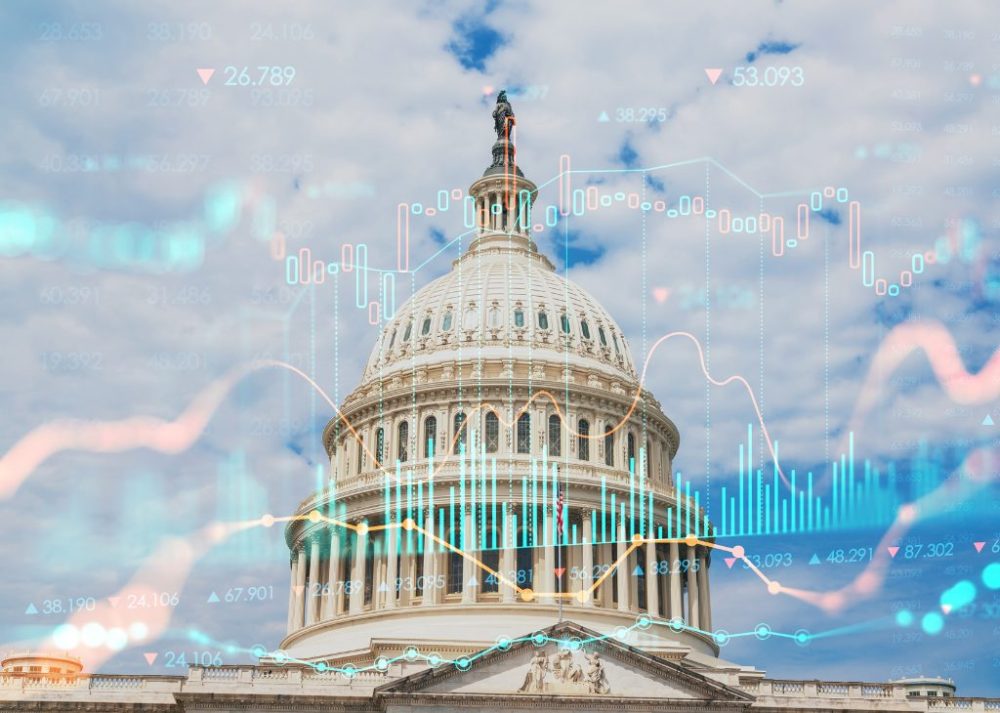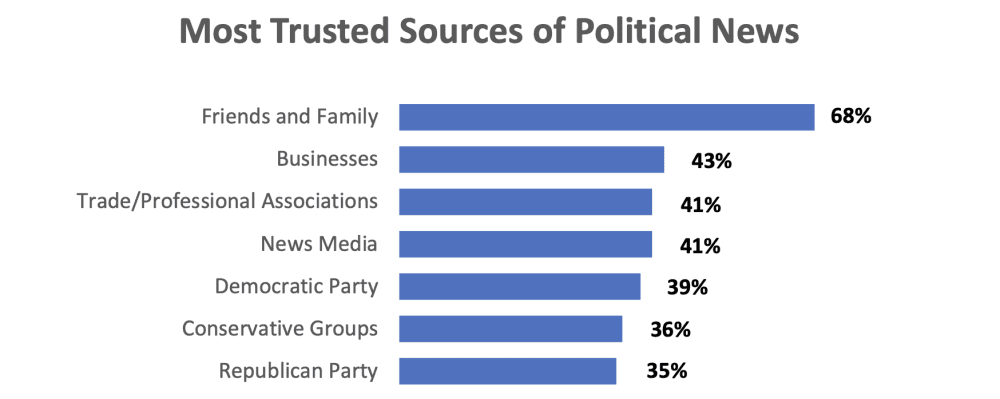
For businesses, political risk isn’t just the threat of new regulations or higher taxes. It’s also risk associated with the uncertainty of government actions, partisan politics, and, of course, election outcomes. As we examine the results of the 2023 Public Affairs Pulse survey, sponsored by the Public Affairs Council and conducted by Morning Consult, it’s clear that political risk is on the rise. Here are three key questions answered by the poll.
Let’s start with “What political allies do major companies have?” The answer is, “It depends.”
Republicans Are Not Always Pro-Business
The Pulse survey, which was in the field Sept. 1-3, showed that 59% of Americans considered the Republican Party more pro-business than the Democratic Party, while 43% thought the Democrats were more pro-business. In fact, 35% of Americans said the GOP was “very pro-business,” while only 17% believed the Democratic Party fit that description.
Since perception is sometimes reality and sometimes not, let’s look at the evidence.
Democrats and Republicans agree on many of the behaviors they like and don’t like about business. They think major companies are doing a good job providing useful products and services, serving their customers, and creating jobs. But they also agree that companies are doing a poor job paying their top executives fairly, without overpaying them. In the new Pulse survey, only 30% of Democrats and Republicans said firms were handling executive compensation issues well.
But there is one business trend for which opinions differ immensely: corporate efforts to engage politically on social issues. Seventy-two percent (72%) of Democrats, for instance, said major companies should be involved in efforts to address racial discrimination, but only 51% of Republicans agreed.
This spread (21 points) was identical for discrimination based on gender and sexual orientation, and even greater for gender identity discrimination (31 points). There were also large spreads for voting rights (27 points) and human rights issues (24 points); for providing access to quality education (19 points); for improving the environment (18 points); for increasing affordable housing (24 points); and even for alleviating hunger (13 points).
While 58% of Democrats supported corporate advocacy for The Deferred Action for Childhood Arrivals (DACA) program, only 32% of Republicans wanted companies involved.
Opinions diverged even more when Americans were asked about business involvement in the abortion rights issue. Fifty-four percent (54%) of Democrats thought major companies should be engaged in that issue, but only 27% of Republicans agreed.
Overall, support for corporate engagement in social issues declined in intensity in 2023. This may have resulted from the backlash caused by politicians accusing corporations of being too “woke.”
Businesses Score Well as Source of Political News
The second question that comes to mind is, “Who do people trust for political news and information?”
Americans were asked to rate 11 different sources of political news and information. The highest-rated source — as usual — was friends and family, with a trust level of 68%.
But the second most trustworthy source of political news continued to be businesses. Forty-three percent (43%) trusted information from businesses, while 42% did not. Next on the trust scale were trade and professional associations, with 41% trusting information from associations and 38% not trusting that information.

The news media was also in this second tier of scores, with 41% of Americans saying they trusted information from news organizations. But a larger percentage (47%) said they didn’t trust the news media.
The least trustworthy sources were the groups spending millions of dollars trying to promote and build trust in their candidates. Only 24% said they trusted political information from campaigns and 60% had little or no trust. Outside political groups such as super PACs were considered just as bad, with only 21% trusting them and 58% distrusting them.
Americans Differ on Democratic Priorities
Question three gets to the heart of what it means to live in a democracy. We all learned in school that one of the key roles of government is to balance support for individual rights with support for the common good.
The question is, “Are people still willing to support the common good?”
The Pulse survey showed that 47% valued both equally, 20% valued individual rights more and 19% valued support for the common good more. There were substantial differences of opinion, however, when we examined the priorities of Trump voters vs. Biden voters and men vs. women.
When asked to choose which democratic pillar was more essential, Trump voters were more likely to value individual rights (27%) than supporting the common good (17%). On the other hand, Biden voters were more likely to value the common good (21%) than individual rights (17%). Biden voters were also more likely to value both equally (56% to 48%).
The sub-group that most valued individual rights over the common good was Republican men (32%). But notably, only 20% of Republican women agreed with this assessment. Among Democrats, 22% of men valued individual rights more, and only 12% of women held that opinion. In fact, across every group of voters, men consistently valued individual rights more than did women.
To better understand public perception of the common good, we asked Americans to evaluate 15 major, government programs designed to benefit all or most of society. The most highly valued “common goods” were clean air and water, food safety, Social Security and Emergency medical services. Both Republicans and Democrats gave strong scores to these four “common goods,” though Democrats scored all of them higher.
Other key findings in the poll include:
1.) The public’s trust that major companies will behave ethically rose slightly to 51% in 2023. Trust levels for all nine industry sectors tested improved this past year.
2.) Just 37% of Americans believed the 2024 elections will be both honest and open to rightful voters, while 43% had serious doubts about honesty, openness, or both. Democrats were far more optimistic than other groups about the legitimacy of the elections.
3.) Nearly two-thirds thought disinformation will be a factor in the outcome of the elections.

Doug Pinkham is president of the Public Affairs Council, the leading international association for public affairs professionals. He has been quoted widely in the news media and is a frequent speaker and writer on public affairs issues, political risk, reputation management and related topics. He currently serves on the board of the Institute for Public Relations.



